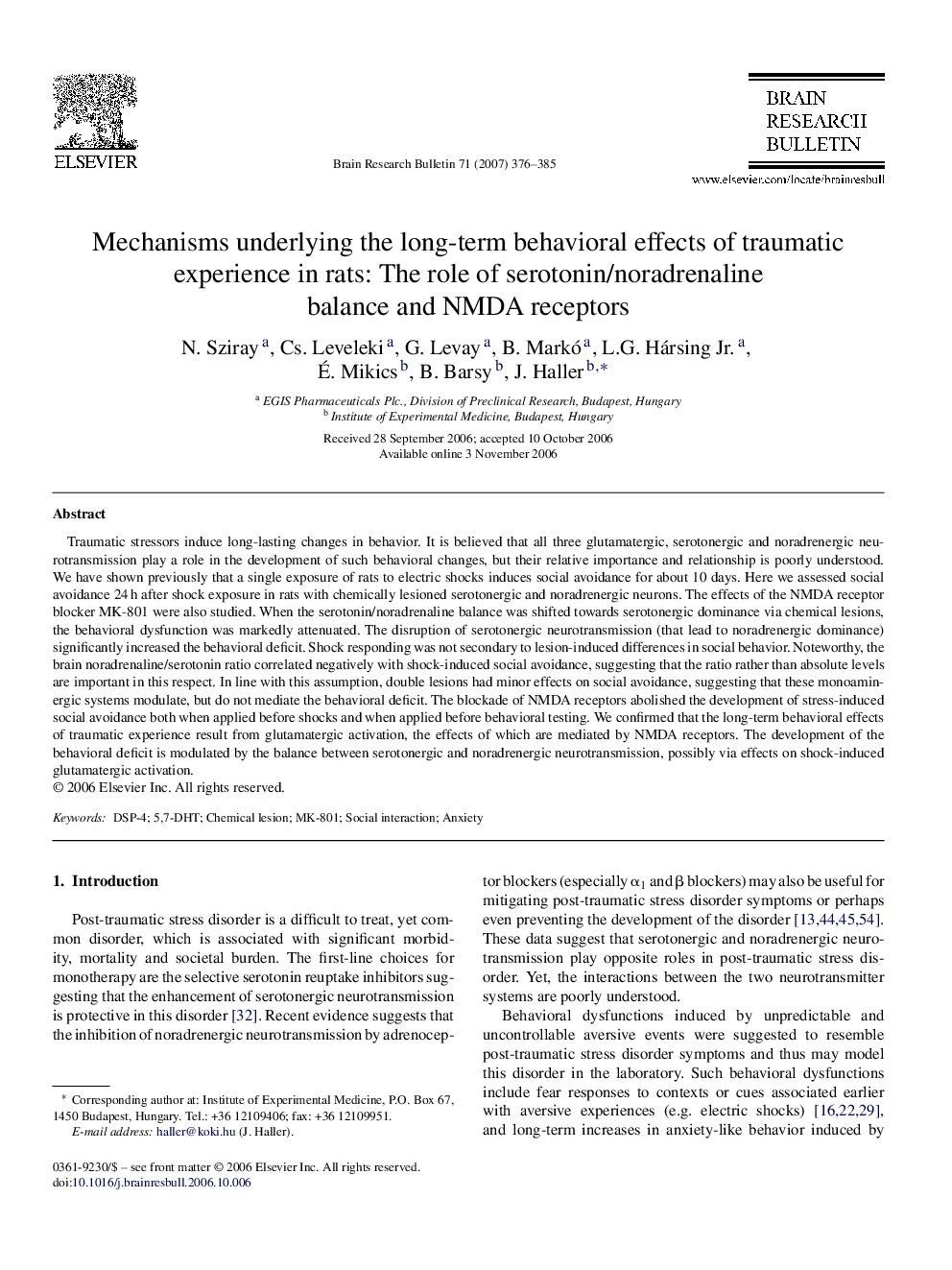| کد مقاله | کد نشریه | سال انتشار | مقاله انگلیسی | نسخه تمام متن |
|---|---|---|---|---|
| 4320048 | 1290845 | 2007 | 10 صفحه PDF | دانلود رایگان |
عنوان انگلیسی مقاله ISI
Mechanisms underlying the long-term behavioral effects of traumatic experience in rats: The role of serotonin/noradrenaline balance and NMDA receptors
دانلود مقاله + سفارش ترجمه
دانلود مقاله ISI انگلیسی
رایگان برای ایرانیان
کلمات کلیدی
موضوعات مرتبط
علوم زیستی و بیوفناوری
علم عصب شناسی
علوم اعصاب سلولی و مولکولی
پیش نمایش صفحه اول مقاله

چکیده انگلیسی
Traumatic stressors induce long-lasting changes in behavior. It is believed that all three glutamatergic, serotonergic and noradrenergic neurotransmission play a role in the development of such behavioral changes, but their relative importance and relationship is poorly understood. We have shown previously that a single exposure of rats to electric shocks induces social avoidance for about 10 days. Here we assessed social avoidance 24Â h after shock exposure in rats with chemically lesioned serotonergic and noradrenergic neurons. The effects of the NMDA receptor blocker MK-801 were also studied. When the serotonin/noradrenaline balance was shifted towards serotonergic dominance via chemical lesions, the behavioral dysfunction was markedly attenuated. The disruption of serotonergic neurotransmission (that lead to noradrenergic dominance) significantly increased the behavioral deficit. Shock responding was not secondary to lesion-induced differences in social behavior. Noteworthy, the brain noradrenaline/serotonin ratio correlated negatively with shock-induced social avoidance, suggesting that the ratio rather than absolute levels are important in this respect. In line with this assumption, double lesions had minor effects on social avoidance, suggesting that these monoaminergic systems modulate, but do not mediate the behavioral deficit. The blockade of NMDA receptors abolished the development of stress-induced social avoidance both when applied before shocks and when applied before behavioral testing. We confirmed that the long-term behavioral effects of traumatic experience result from glutamatergic activation, the effects of which are mediated by NMDA receptors. The development of the behavioral deficit is modulated by the balance between serotonergic and noradrenergic neurotransmission, possibly via effects on shock-induced glutamatergic activation.
ناشر
Database: Elsevier - ScienceDirect (ساینس دایرکت)
Journal: Brain Research Bulletin - Volume 71, Issue 4, 9 January 2007, Pages 376-385
Journal: Brain Research Bulletin - Volume 71, Issue 4, 9 January 2007, Pages 376-385
نویسندگان
N. Sziray, Cs. Leveleki, G. Levay, B. Markó, L.G. Jr., Ã. Mikics, B. Barsy, J. Haller,